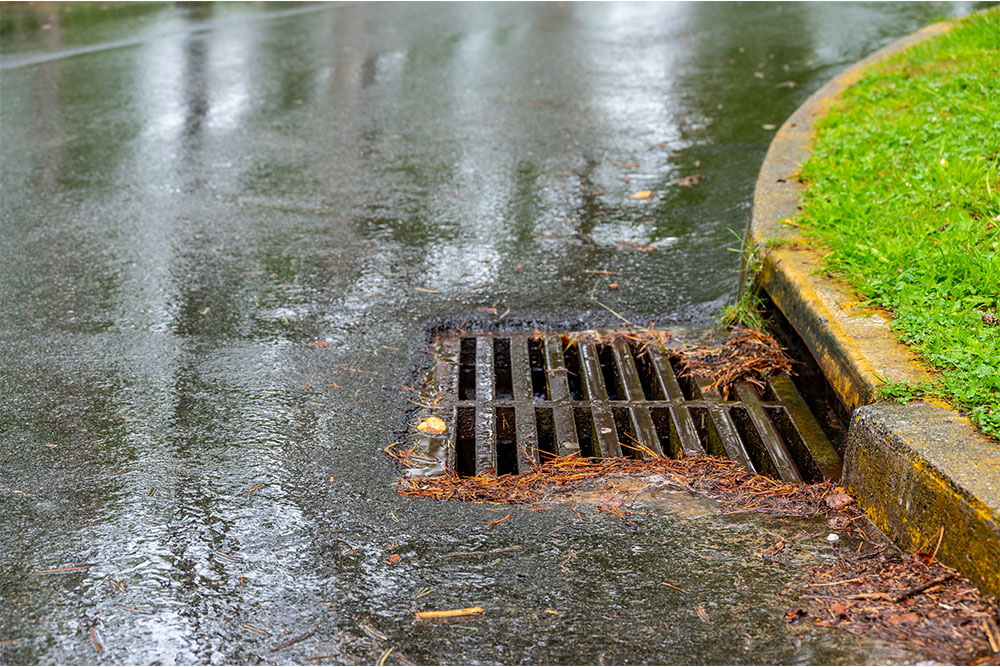Stormwater Management Services: How They Help

Stormwater runoff can cause a range of environmental issues, from flooding to the contamination of water resources. Proper management is vital for protecting natural ecosystems and maintaining compliance with local regulations.
Stormwater management services use techniques like bioretention basins, swales, and permeable pavements to reduce flooding, improve water quality, and benefit ecosystems.
In this article, we will explore how stormwater management works and how these services benefit the environment and infrastructure.
How Stormwater Management Works
Stormwater management involves a combination of physical, biological, and engineering solutions aimed at controlling the flow and quality of stormwater.
When rain falls on urban areas, it collects contaminants like oil, trash, and chemicals. Without proper management, this runoff can overwhelm drainage systems and cause pollution in rivers, lakes, and streams.
A well-designed stormwater management system captures and filters this runoff before it enters natural water bodies. Solutions such as vegetation management, retention ponds, and permeable pavements allow rainwater to be absorbed or treated.
Benefits of Effective Stormwater Management Services
Effective stormwater management offers numerous benefits to both the environment and the communities it serves. Here are some key advantages:
- Flood Prevention
Stormwater systems play a crucial role in reducing the risk of flooding by controlling how water flows during heavy rain events. In areas where the ground is impermeable, such as cities with asphalt or concrete surfaces, water cannot easily absorb into the ground.
Properly designed stormwater systems allow rainwater to slowly infiltrate the soil. This will prevent sudden surges of water that can overwhelm drainage systems.
With techniques like retention basins, swales, and permeable pavements, stormwater management helps make sure that the water flows in a controlled manner. This helps reduce the likelihood of flooding and protecting both infrastructure and local communities.
- Water Quality Improvement
One of the primary goals of stormwater systems is to improve the quality of water in local rivers, lakes, and streams by filtering contaminants from stormwater before it enters natural water bodies.
As rainwater flows over streets, parking lots, and other urban surfaces, it picks up pollutants like oil, trash, heavy metals, and chemicals. All of these can harm aquatic ecosystems and pollute drinking water supplies.
Stormwater systems use natural and engineered filtration methods, such as bioretention basins and vegetated swales, to remove these pollutants before the water reaches natural bodies.
- Erosion Control
Stormwater management systems also play a significant role in preventing soil erosion–especially important in areas with heavy rainfall or in regions with sensitive ecosystems.
When stormwater flows rapidly over land, it can wash away the topsoil and lead to loss of fertile soil, compromised agricultural lands, and sedimentation in water bodies. Properly designed stormwater systems slow down runoff. This allows water to infiltrate the soil instead of rushing across the surface.
- Regulatory Compliance
Many communities have strict regulations governing stormwater management to protect local environments. Proper management verifies that businesses and municipalities comply with these regulations. This helps avoid penalties and environmental damage.
Emerging Trends in Stormwater Management
As urbanization increases, new technologies and methods for stormwater management are emerging to address the growing environmental challenges.
Green infrastructure solutions like green roofs, rain gardens, and bioswales are gaining popularity. These solutions utilize natural processes to manage runoff, which can help restore ecosystems and enhance community resilience.
Moreover, innovations in smart stormwater systems are helping communities more efficiently monitor and manage runoff. With the use of sensors and data-driven insights, these systems can help anticipate heavy rain events and optimize stormwater management strategies in real-time.
Role of Coleman Environmental Engineering in Stormwater Management
Coleman Environmental Engineering, LLC specializes in designing and implementing stormwater management systems that are both sustainable and compliant with environmental regulations. Our team of experts integrates advanced techniques with practical solutions to address each project’s unique needs.
We take pride in our ability to combine traditional Remedial Construction methods with green infrastructure solutions. With a focus on long-term sustainability, we help our clients reduce runoff, enhance water quality, and improve the resilience of their infrastructure.
When it comes to maintaining the effectiveness of stormwater systems, we understand the importance of vegetation management. Our team confirms that trees and plants are maintained to support the overall functionality of stormwater solutions.
With our thorough assessments and proactive approach, you can rest assured that your stormwater management system will continue to operate efficiently.
Partnering for Sustainable Stormwater Solutions
Coleman Environmental Engineering, LLC is dedicated to helping you manage stormwater runoff in a way that supports both regulatory compliance and environmental health. With us, you can make sure that your stormwater systems are not only effective but sustainable for years to come.
Let us help you manage your stormwater needs with confidence and care. See our environmental engineering projects and contact us today.
